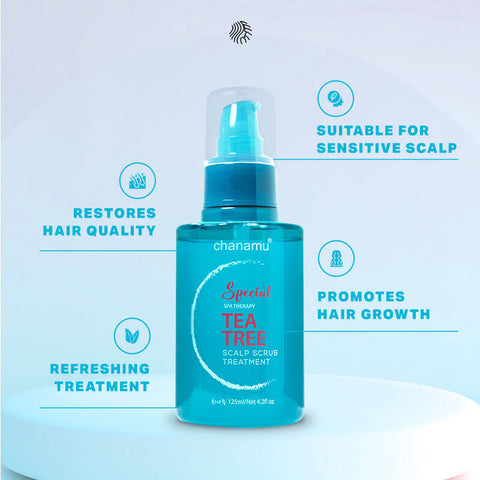Scalp Scabs: What's the Yellow Crust on my Scalp?
Seborrheic dermatitis is a common skin condition that affects the sebaceous areas of the scalp. The subcutaneous glands secrete sebum (oil), thereby creating greasy patches and flaky skin, which might be white or yellow in colour. Signs of seborrheic dermatitis are:
- Flakes of skin i.e., dandruff
- Yellow or white crusts on the scalp
- Reddened skin
- Itchy scalp

What causes scalp scabs?
Contrary to popular belief, scalp scabs and dandruff are not caused by poor hygiene. There are several biological and external factors that cause scalp scabs:
Biological
Overgrowth of Malassezia Yeast Malassezia is an organism that resides on the skin’s surface. An overgrowth of malassezia causes our immune system to overreact and inflame the skin
Malassezia is an organism that resides on the skin’s surface. An overgrowth of malassezia causes our immune system to overreact and inflame the skin

Hormonal & lipidal changes may over-produce sebum, thereby resulting in scalp scabs.
Genes Seborrheic dermatitis may be a hereditary condition, such that people with oily skin or hair are more prone to developing seborrheic dermatitis.
Seborrheic dermatitis may be a hereditary condition, such that people with oily skin or hair are more prone to developing seborrheic dermatitis.
External
Stress
Stress and lack of sleep have negative effects on our immune functioning, thus potentially leading to overproduction of sebum and/or inflammatory chemicals which might contribute to, or worsen seborrheic dermatitis.
Harsh products
Harsh hair-care products strip the scalp of its natural oils. In turn, the immune system over-produces sebum to compensate for the lack of oil on our scalp.
Weather
Dry and cold air tends to dry our scalps, leading to scalp itches and flaring up of seborrheic dermatitis.
How can scalp scabs be treated?
-
Self-care

Daily washing and cleansing with lukewarm water and gentle shampoo can help reduce build-up of sebum and dirt in the scalp. Following a regular hair-care routine also helps keeps symptoms of seborrheic dermatitis under control.

Healthy lifestyle habits of getting sufficient sleep and managing stress can improve the scalp.
-
Over-The-Counter products
OTC products that can help scalp scabs include medicated shampoos, creams, and lotions. For example, topical antifungals or corticosteroids can be applied to the scalp or affected areas, following the product’s directions of use.
Dandruff shampoo is also often recommended for treatment.

Here, we would like to recommend our Chanamu Tea Tree Shampoo! The shampoo contains Tea Tree oil, which has known anti-fungal properties. Besides eliminating germs and bacteria, it also reduces scalp oil, ensuring that the scalp is cleansed.

A scalp scrub can also gently exfoliate the scalp by removing excess oil and dirt for a healthier scalp. Our Chanamu Tea Tree Scalp Scrub Treatment helps exfoliate hair product buildup, sebum and dead skin cells, leaving a healthier scalp. Also, the menthol in it will leave your scalp feeling refreshed and clean!
If the condition persists or worsens despite your self-care procedure(s), do see your doctor for a professional diagnosis and treatment.
We produce and upload beauty related content on our channel weekly at Hana Story Boutique, so be sure to join us and be part of the beauty community. Additionally, you may follow our social media Instagram, Facebook or YouTube for more updates! See you there!

